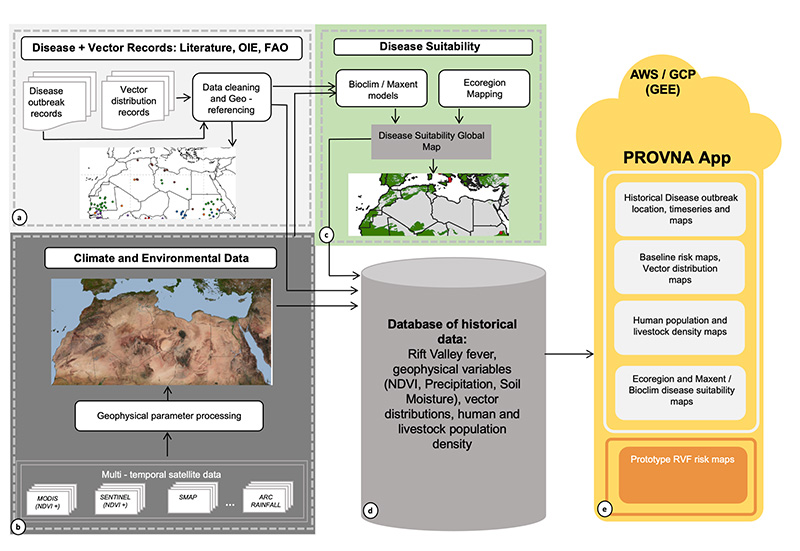OIE project to support Vector-Borne Diseases Surveillance in North Africa "Rift Valley Fever as first application"
The OIE, through its ‘Prevention and Control for Transboundary Animal Disease’ Project (PC-TAD) funded by the German Ministry for Economic Cooperation and Development (BMZ), entrusted the Istituto Zooprofilattico Sperimentale dell’Abruzzo e del Molise “G. Caporale” (IZS Teramo) as OIE Reference Center for several domains (e.g., horizontal topics: epidemiology, modelling and surveillance; specific diseases: e.g., West Nile, Bluetongue, Brucellosis, CBPP) to implement the project in North Africa entitled “Defining Ecoregions and Prototyping on EO-based Vector-borne Disease Surveillance System for North Africa (PROVNA)”. The project will be implemented in collaboration with the Goddard Earth Sciences Technology and Research (GESTAR) II Center, which is a cooperative entity between University of Maryland Baltimore County (UMBC) and NASA Goddard Space Flight Center. The project was elaborated under the coordination of the OIE Sub-Regional Representation for North Africa in the framework of the Mediterranean Animal Health Network (REMESA) which is a unique platform for regular dialogue between Chief of Veterinary Officers of 15 Mediterranean countries (including North African countries). The platform aims at harmonizing surveillance activities for priority transboundary diseases including diseases related to climate change such as vector-borne diseases. One of the recommendations issued from the REMESA meetings, has been the need of developing adapted predictive and innovative models and technological tools for early warning as well as for the identification of hotspot areas for improved surveillance. Among the vector borne diseases, Rift Valley fever (RVF) is one of the most important zoonoses currently present in countries bordering Europe and has potential for globalization.
Thus, the Prototype Risk Maps Application issued from this project will support Veterinary Services of North African countries (Algeria, Egypt, Mauritania, Morocco, Libya, and Tunisia) to design targeted surveillance for vector-borne diseases, and particularly RVF as first application, through a strategic planning by optimizing financial and human resources (e.g., the tool will inform which areas are potentially at greater risk for RVF so to implement entomological and serological surveillance in a determined period). The benefit of this project is the implementation – for the first time in North Africa – of a newly system which integrates an ecological approach (definition of similar ecoregions) with a prototyping system which considers dynamic variables. 
6 May 2022
© IZSAM May 2022
|
|
Istituto Zooprofilattico Sperimentale
dell'Abruzzo e del Molise "G. Caporale"
Campo Boario | 64100 TERAMO | ITALIA
Telefono 0039.0861.3321 | Fax 0039.0861.332251
e-mail: archivioeprotocollo@izs.it
Posta elettronica certificata: protocollo@pec.izs.it
Partita IVA: 00060330677
Codice Fiscale: 80006470670


